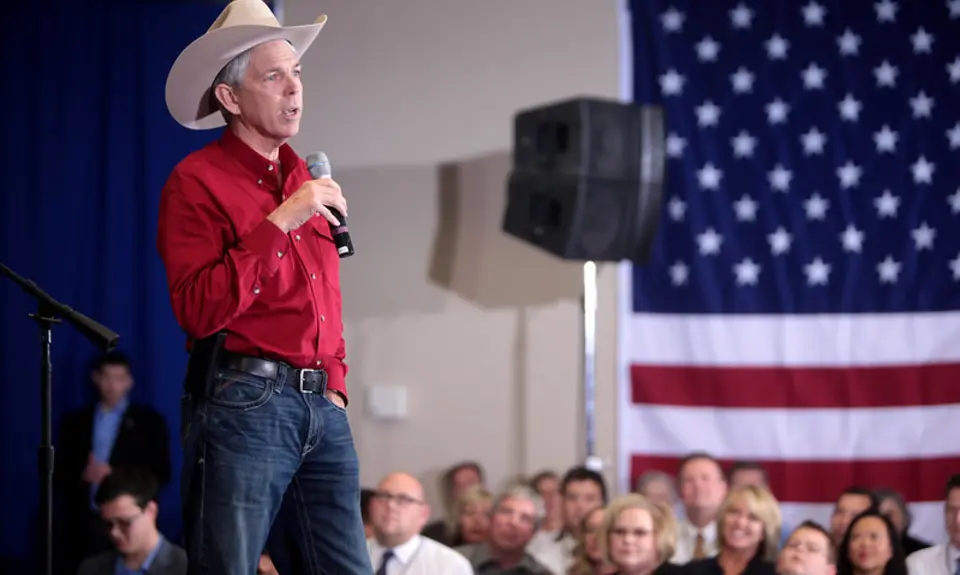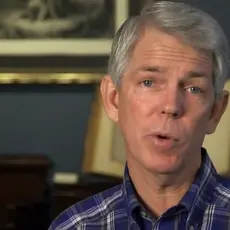Christian nationalist pseudo-historian David Barton is currently traveling the nation delivering presentations in churches as part of the Faith Wins effort to mobilize conservative Christian voters for the midterm elections. As part of this effort, Barton is continuing his habit of making false and misleading claims about early American history.
During an event Monday at Truth Baptist Church of Mechanicsville, Virginia, Barton once again falsely claimed voter turnout in early elections was always 100 percent because "churches ran the communities."
"Churches ran the communities, and the voter turnout was 100 percent," Barton said. "That was for at least 70 years. When Daniel Webster ran for Congress, there were 5,000 voters in his district. Five thousand votes were cast, now he got 4,990 so the other guy—it must have been him and his family was all that voted for him—but nonetheless, it was still 100 percent turnout. We felt like that was a duty we would answer to God for [so there] was really high, high turnout [because] churches ran it."
Barton's claim is absurd given that statistics show that voter turnout has never once reached 100 percent even in presidential elections. And while their are apocryphal reports that Daniel Webster won 4,990 out of 5,000 votes cast in the 1824 congressional election, such reports do not provide any information about how many people were eligible to vote in that election. Winning 4,990 out of 5,000 votes would only prove that Webster was a popular candidate; it says nothing about what percentage of eligible voters actually participated in the election.
Barton's claim that "the voter turnout was 100 percent ... for at least [the first] 70 years" of American history is debunked by historian Pauline Maier in her book, “Ratification: The People Debate the Constitution.” Maier reports that during the 1789 congressional race between James Madison and James Monroe in the inaugural election following ratification of the Constitution, more than half the Virginia voters didn't even bother to participate:
When the election was over, Madison acknowledged that without his active campaigning, he would not have beaten the odds and won 1,308 votes to James Monroe's 972 on February 2, 1789, a snowy election day when most of the district's 5,189 voters stayed home.
There could hardly have been 100 percent voter turnout in every election in America for the first 70 years when in one of the very first elections in American history, 56 percent of eligible voters didn't even cast a vote.






